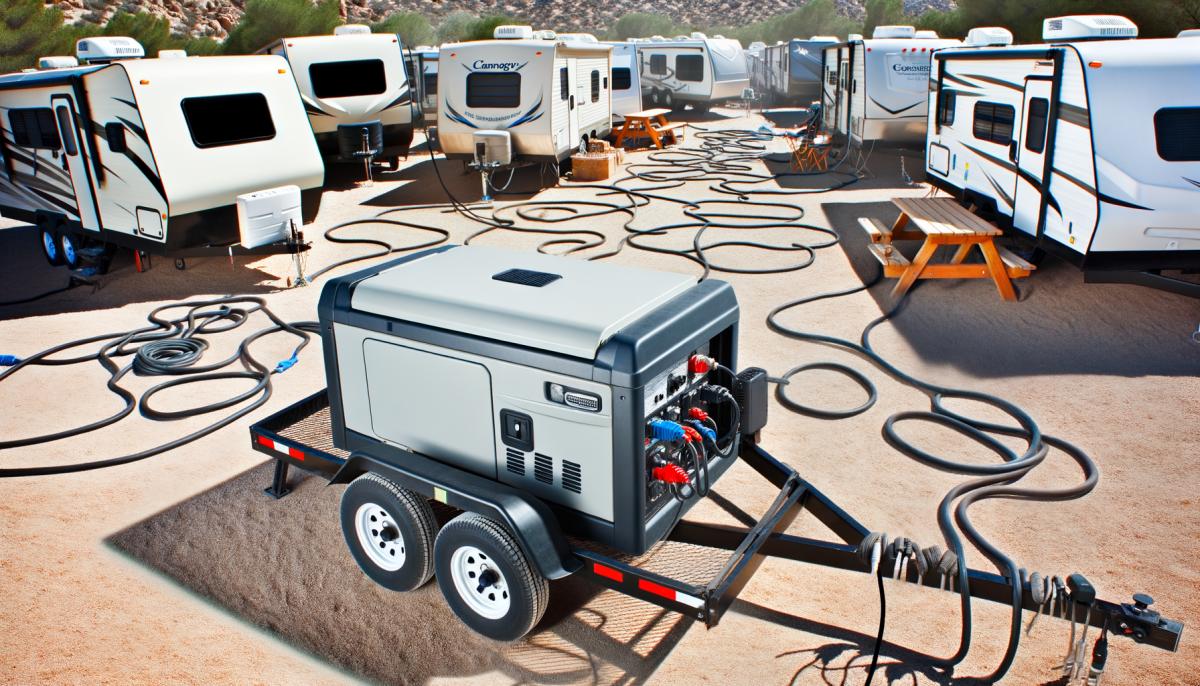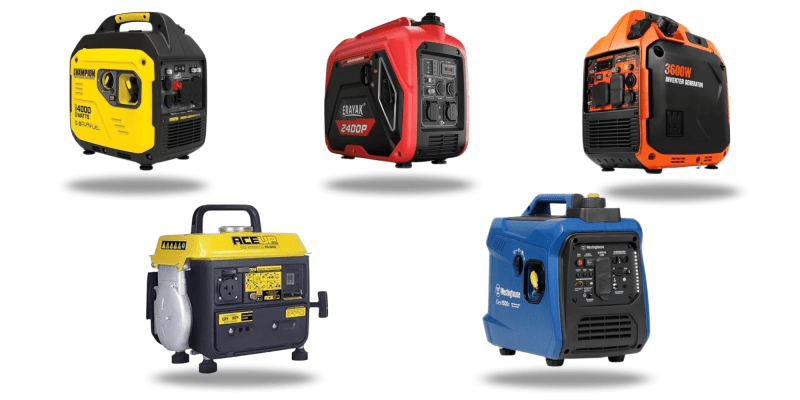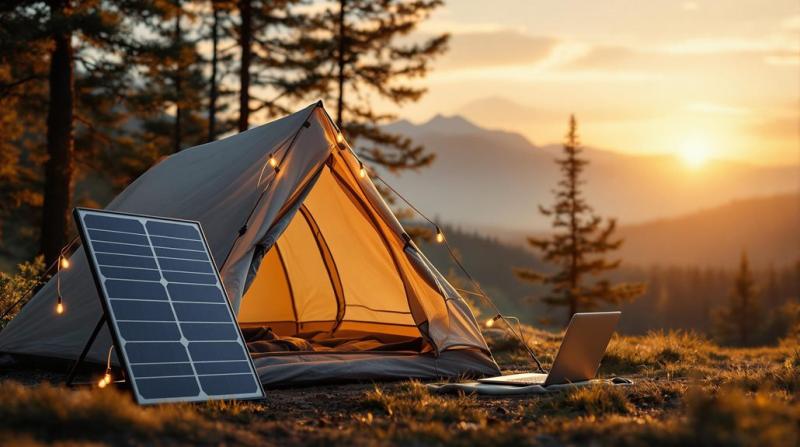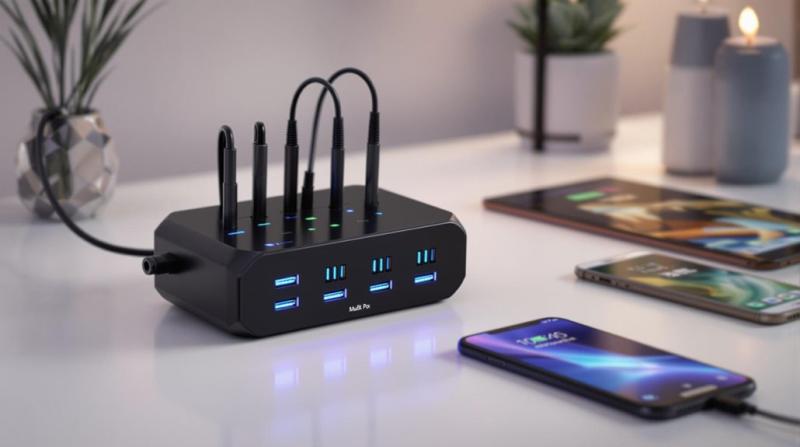So, you're in the market for a top high-capacity portable generator? Let's dive in! First things first, you need to figure out your power needs. This is super important because it'll help narrow down your choices.
Take a look at models like the Honda EU2200i or the Westinghouse iGen4500. These are pretty popular because they're efficient and easy to move around.
Now, think about the features you want. What kind of fuel do you prefer? How long do you need the generator to run? And don't overlook noise levels—no one likes a loud generator!
Lithium-ion batteries are a fantastic option. They're lighter and charge up much faster. If you want versatility, check out dual-fuel options like the DuroMax XP12000EH.
Portability is key, right? Make sure you get something with wheels and handles so you can move it around without breaking your back.
There's a lot more to think about when choosing the perfect generator for your needs, but this should get you started on the right path!
Understanding Battery Capacity
Understanding battery capacity is super important for getting the most out of your portable generator. You want to make sure you have enough juice for all your needs, right?
Battery capacity, which is measured in watt-hours (Wh) or amp-hours (Ah), tells you how much energy the battery can store and deliver over time. Once you know this, you can make better decisions about what devices you can run and for how long.
Okay, so let's break it down. To figure out how long your generator can power your stuff, you need to know the battery's capacity and the wattage of your devices. For example, if you have a generator with a 1000Wh capacity and you're running a 100W appliance, you can expect around 10 hours of use (1000Wh ÷ 100W = 10 hours). Easy peasy!
But don't forget about efficiency. Things like battery age, temperature, and how much stuff you're running can mess with performance. This means you mightn't get the exact runtime you were hoping for.
Also, keep in mind the difference between peak and continuous power ratings. The peak rating is the max power your generator can provide in short bursts, while the continuous rating is what it can sustain over time. Got it? Cool!
Key Features of High-Capacity Generators
When you're in the market for a high-capacity generator, there are a few key features to keep an eye on that can really amp up performance, efficiency, and portability.
First off, think about the power output. You want to make sure the generator you pick has a wattage rating that fits your needs, whether you're prepping for power outages or need to run tools at a job site.
Next up, let's talk batteries. Lithium-ion batteries are generally lighter and more efficient than the old-school lead-acid ones. This makes them a great choice if you need something portable.
Don't forget to check the runtime, too. This tells you how long the generator can go on a single fuel tank or charge. The longer the runtime, the less you'll need to refuel or recharge, which is a big plus.
Portability is another biggie. Consider the weight, wheels, and handles. Built-in wheels and ergonomic handles can make moving the generator a breeze.
And hey, noise levels matter too. Quieter generators are a godsend, especially if you're in a residential area or out camping.
Finally, ease of use is crucial. Look for features like electric start and user-friendly control panels to make operation smoother, especially if you're new to this.
Some generators even come with smart tech that lets you monitor performance through your smartphone. How cool is that?
Top High-Capacity Portable Generators
If you're looking for reliable power on the go, several high-capacity portable generators stand out in today's market. These generators are perfect for camping, tailgating, or providing backup power during outages.
One top choice is the Honda EU2200i. It's super quiet and impressively fuel-efficient. With a 2200-watt output, it's lightweight and easy to transport. No wonder it's a favorite among outdoor enthusiasts!
Another excellent option is the Westinghouse iGen4500. This generator offers a whopping 4500 watts of peak power and has a built-in inverter for clean energy. That's perfect for sensitive electronics, right? Plus, it comes with a remote start, so you can power up quickly without any hassle.
Now, if you need even more power, check out the DuroMax XP12000EH. This dual-fuel generator can run on propane or gasoline, giving you flexibility in fuel choices. With 12,000 watts of peak power, it can run multiple appliances simultaneously. It's ideal for home backup during emergencies. Pretty cool, huh?
Lastly, the Champion 4500-Watt Dual Fuel Portable Generator is versatile and easy to use. It features a quick touch panel for easy access to controls. Plus, it can run on both gasoline and propane. Talk about convenience!
Each of these generators combines performance, reliability, and portability, ensuring you won't be left in the dark when you need power most. Just choose one that fits your needs, and you'll have peace of mind wherever your adventures take you.
Comparing Battery Performance
Battery performance is super important for making sure your portable generator meets your power needs efficiently and reliably. When you're comparing battery performance, there are a few key factors you'll want to keep in mind: capacity, discharge rate, and recharge time. Let's break it down.
First up, capacity. This is measured in amp-hours (Ah) and tells you how much energy the battery can store. Basically, the higher the capacity, the longer your generator can run before you need to recharge it. For instance, if you have a generator with a 100Ah battery, it can provide power for all sorts of things, whether you're camping or using it as an emergency backup. Pretty handy, right?
Next, let's talk about the discharge rate. This is all about how quickly the battery can release its power. If you need to power high-demand appliances, you'll want to look for batteries with a higher continuous discharge rating. This way, your generator can handle those peak loads without breaking a sweat.
Now, recharge time is a biggie. A generator that takes forever to recharge can leave you in a lurch when you need power the most. So, keep an eye out for models that offer fast-charging capabilities. This way, you can get back up and running in no time.
And finally, don't forget about the type of battery. You've got lithium-ion and lead-acid to choose from. Lithium-ion batteries are generally lighter, last longer, and recharge faster than lead-acid ones. But, they do tend to be a bit pricier. So, weigh your options based on what you need and what you're willing to spend.
There you have it! With these factors in mind, you'll be well on your way to finding the perfect battery for your portable generator.
Choosing the Right Generator
Selecting the right generator involves a few important steps, but don't worry, it's all pretty straightforward.
First, you need to figure out your power needs. Make a list of all the essential appliances you plan to power and jot down their starting and running wattages. This will give you a good idea of the generator's capacity. And, hey, it's always smart to pick a generator with a little extra capacity. You never know when you might need that extra juice!
Next up, think about portability. If you need to move your generator around a lot, look for something lightweight with handles or wheels. Some models even have foldable designs, which can make them a breeze to store and carry. But, if you're just planning to use it at home during emergencies, a heavier model might be just fine since you won't be lugging it around too often.
Lastly, let's talk budget. Generators can vary a lot in price. It's tempting to grab the cheapest one, but investing in a reliable, high-quality generator can save you a lot of trouble down the road. Consider things like fuel efficiency, noise levels, and warranty options.
Oh, and definitely read some reviews and compare brands. It's always good to make an informed decision. Happy generator hunting!



